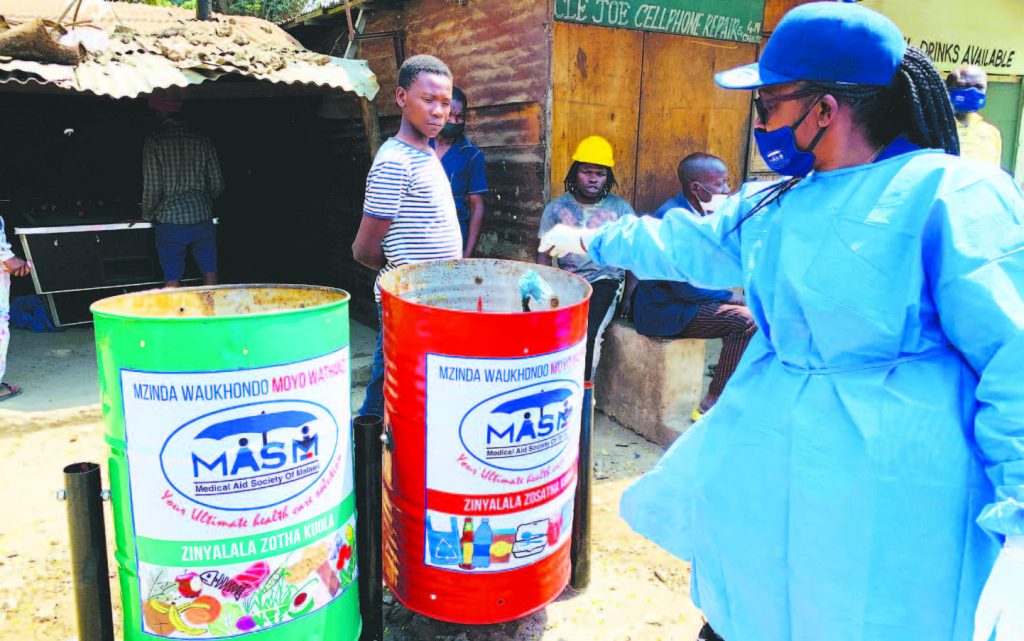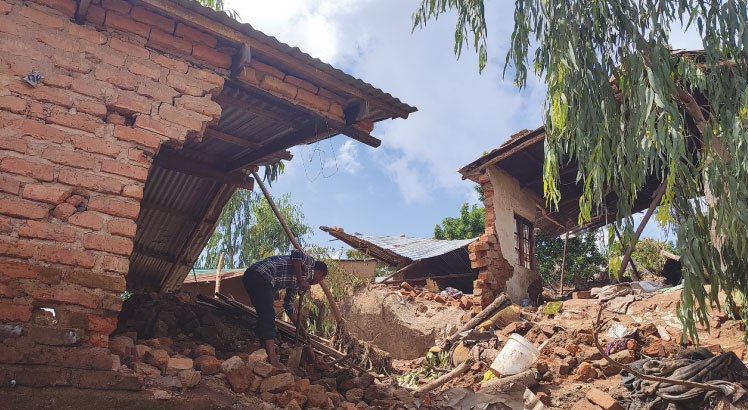Blantyre embraces recycling
Waste Advisers and Blantyre City Council (BCC) have installed separation bins in Blantyre Main Market for easy sorting of refuse that litter the crowded setting.
The bins are part of a K4.9 million project funded by Medical Aid Society of Malawi (Masm) to reduce waste.

The Ministry of Health estimates that a breakdown in sanitation services causes diseases that haunt over half of outpatients in the country’s health facilities.
Masm supported the purchase of 80 separation bins and one refuse skip as well as transportation of organic waste to a composting facility located in Chigumula Township.
The clean-up will extend to Limbe, Zingwangwa, Nancholi Turn-Off and Queen Elizabeth Central Hospital markets.
Masm chief commercial officer Bernard Ambali says the modern waste disposal initiatives are in line with the medical insurer’s goal to create a healthy nation.
“By cleaning up the city’s markets, we reduce the health risks posed by organic waste, including waterborne and insect-borne diseases. Our members can be proud of this initiative,” he says.
Waste Advisers director Billy Bray called for sustained mass awareness campaigns to make waste separation a “national habit”.
“The partnership involving the council, non-governmental organisations and market stakeholders is required to promote waste separation at source and regular waste disposals,” he explains.
With an urbanisation rate of 5.2 percent, the 2018 census shows that Malawi’s filthy cities and towns play home to almost 16 percent of the country’s population estimated at 18.4 million.
The partners expect improved waste handling to reduce the city’s greenhouse gases, including methane, which fuel climate change.
Malawi’s Nationally Determined Contribution to the global push to reduce carbon emissions indicates that informal settlements worsen challenges in waste collection and disposal.
“The per capita waste generation ranges from 0.37 to 0.9, with organic content of 81 percent,” reads the report in part.
Waste Advisers have been working in conjunction with the city council in waste management innovations since 2004.
The new partnership focuses on turning Blantyre’s waste burden into valuable, marketable products.
Neglected garbage sites constitute a major source of methane emissions, which fuel global warming.
It is estimated that 12 percent of the world’s total methane emissions comes from landfills.
In Malawi, waste contributes two percent of the greenhouse gases blamed for fuelling climate change, which has made weather-related disasters more frequent and devastating.
Blantyre market master Patrick Inyuku says the initiative will address some of the public health and environmental concerns affecting market users.
“We are committed to promoting waste separation within the market and to encourage market vendors and users to use the bins properly,” he says.
The new bins are coded green for organic waste, red for inorganic waste—for easy identification.
Since 2018, Waste Advisers and BCC have been jointly churning out compost manure from organic waste from markets. The organic fertiliser boosts soil fertility, texture and moisture retention, leading to higher crop yields amid climate change.
Waste is also used to make biogas for cooking.





